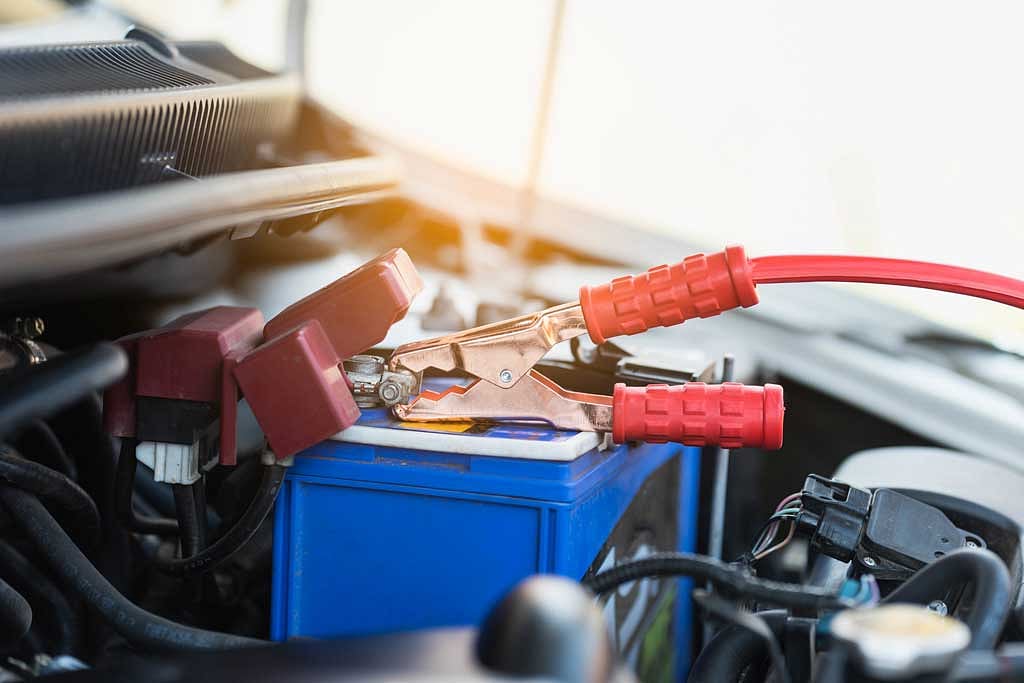Knowledge Hub

Leaving Lockdown: Caring for your Vehicle when not in use
One of the few positives of the Coronavirus pandemic is the very small usage of private vehicles. And while this is undoubtedly a plus, not using a vehicle can bring about some negative effects. Vehicles work best with regular usage; sitting idle leads to rusting and blockages in the many pipes. And, of course, the battery needs to be run regularly to maintain charge.
So, rather than not driving your vehicle at all, it is advisable to take fewer trips (at least two per week of ten minutes in length).
But if you decide to rather not drive at all for the foreseeable future, here are some easy tips for short term storage of your “baby” – and for getting back on the road.
Short term storage tips
- Disconnect the Battery: Removing the negative (black) terminal is a simple and quick way to maintain battery charge.
Always remember to disconnect the negative terminal before the positive (red) and never let the two terminals make contact with each other.
Tip: Rub Vaseline on the terminals to prevent rust.
- Cover the vehicle: Give your vehicle a good clean, apply a cover and park under a roof or some sort of cover.
Tip: Don’t use a cover if you’re storing our vehicle in a closed space. According to the AA, doing this means that moisture inside will evaporate faster.
- Fill the tank: A full tank of petrol means less opportunity for rust to form due to moisture build up.
- Keep your Insurance: Don’t give in to the temptation to cancel your insurance. You may need the vehicle for an unexpected emergency; not having insurance cover may be a breach of your hire purchase agreement; and you may lose a no claims bonus if your cancel. Rather, speak to your insurer about possible discounts for reduced usage.
- Maintain service intervals: Regular servicing is important to maintain a vehicle’s smooth operations. A service always includes changing the oil - and often the air – filters, and replacing essential fluids (anti-freeze, oil). Not keeping up with the manufacturer’s stated service intervals may disqualify the vehicle’s warranty or maintenance plan.
Tip: Check your service interval history. Intervals will be based both on time (usually, every six months) and mileage. Even though you may have driven very few kilometres, the service time period may have lapsed. [390]
Longer term storage
If you’re planning on storing your vehicle for long periods (over three months) you may want to look at additional measures to protect your vehicle.
These could include disconnecting the spark plugs, draining the oil and raising the vehicle off the ground (to avoid tyre flat spots).
Re-starting your baby
Some simple steps can help you assess whether your vehicle is ready to ride – and especially for the Winter months.
Listen to the engine when re-starting. Are there any squealing sounds? These might be signs of worn belts or poor lubrication.
Pop the hood and check the antifreeze levels. This is essential to avoiding over-heating in winter months.
Petrol is only good for around three months before it can cause serious damage.
Check the suspension by simply pressing down on all four corners; each one should provide the same amount of resistance.
Have you tyres inspected by a qualified company. Ask them to check the alignment, too.
Run your windshield wipers to check the blades – especially important in rainy seasons!
Getting on the road again
Last but not least, take your time to acclimatise to driving again.
Post-lockdown, we may no longer be used to the noises, stimulus and concentration required to be on the roads.
Avoid driving long distances until you have successfully re-built this capacity.

We Have Great
Insurance Products
Need car, home & Life Insurance? We offer a wide range of insurance products. Switch & get cash back on insurance premiums.




